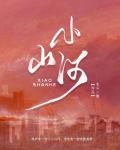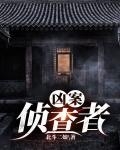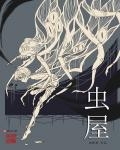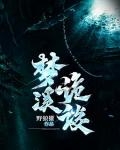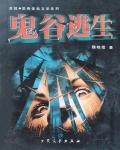chapter eight 1
Mu Linfeng waved his hand hastily to stop Tan Laoer from talking, and then said as he walked away, "Nowadays, some people do spend hundreds of thousands or even millions to build luxurious cemeteries, but this is not advisable."
"Oh, why?" Boss Tan asked with great interest.
"Excuse me for being blunt, but this is a foolish act. The fortune of a tomb has nothing to do with the luxury of its construction. It may even have the opposite effect."
Mu Linfeng's words obviously surprised the Tan brothers. The second brother Tan said in surprise: "Master Mu, can you explain it more clearly? Why would there be an opposite effect?"
Mu Linfeng explained as he walked, "There are three auspicious burial sites and six inauspicious burial sites. The Book of Burial says: 'Auspicious burial sites but inauspicious burial sites are the same as abandoning the body.' This means that no matter how good the chosen cemetery is, if there is a problem with the way the burial is conducted, it is equivalent to abandoning the body of the deceased. I will tell you about what an 'auspicious burial site' is when we get to the village later. Let me first talk about the 'six inauspicious burial sites': 'The mismatch between yin and yang is the first inauspicious, the discrepancy between the seasons is the second inauspicious, the ambition is big with little strength is the third inauspicious, the fourth inauspicious is relying on luck and power, the fifth inauspicious is usurping the power of the superior and forcing the inferior, and the sixth inauspicious is strange and unusual'. The first and second inauspicious refers to the fact that the burial day does not have the right direction and the right year and month. The third inauspicious refers to the fact that the living person has little luck and power but wants to be a king without considering his strength and virtue. As for the fourth inauspicious, I believe you both know it, so I will not elaborate on it. Excessive display of wealth and honor is of no benefit to the deceased and brings disaster to the living..."
Before Mu Linfeng finished speaking, Boss Tan said sincerely, "I understand. Thank you Master Mu for your frank advice. So what should we do?"
"Everything should be in accordance with the principles of yin and yang."
Although Mu Linfeng's words were very profound, everyone understood what he meant and did not ask any more questions.
As they were talking, the group arrived at the foot of the mountain behind the village.
There are about several acres of area here. It is rare to find such flat land on the mountain, and there is also a continuous stream running through it. The stream also turns in the middle of the land, forming a semi-circle. From a distance, it looks a bit like the shape of the yin and yang fish in the middle of Tai Chi. It is really a nice place.
After carefully observing the surrounding environment, Mu Linfeng took out a small deerskin bag from his arms, and then pulled out a white needle-like object more than an inch long from the interlayer of the bag. There was a red line about a foot long passing through the eye of the needle. This was the "dragon bone needle", a special tool unique to the Mu family for "finding dragon points".
This dragon bone acupuncture needle was specially given to the ancestor of the Mu family by the old Taoist who taught him the skill of tomb-reading. It is said to be made by carefully grinding a thousand-year-old dragon bone fossil. There is only one of its kind in the world. The tombs pointed by this needle will never deviate from the target.
The most mysterious part of tomb-finding is "finding dragons and locating acupoints". The so-called "finding dragons" means going to the wild to observe the shape of the mountains and terrain; "locating acupoints" means determining the specific location of the tomb. The reason for this name is that some people want to be mysterious, and secondly, the mountain looks like a winding dragon if viewed from a high place.
After "finding the dragon", "pointing the acupoints" is the key. This is also a bit like the finishing touch. However, point-finding is indeed the most critical part of the tomb selection process, and it also shows the skill of the tomb selector. Therefore, people who are proficient in the art of tomb selection often say: three years to find the dragon, ten years to point the acupoints. This is what it means.
Finding dragons requires climbing mountains and crossing ridges, which is quite tiring and is a physical job, but acupuncture is a more complex mental work. For finding dragons, people who know a little bit about it know how to do it, but "acupuncture" is not something that ordinary people can do, and it is the core secret of the art of tomb divination.
"Pointing the acupoints" is also a complicated process. In the words of tomb-watchers, there are a series of steps, such as recognizing the acupoints, observing the acupoints, examining the acupoints, and determining the acupoints. There are also various tools for point-pointing. Most tomb-watchers like to use walking sticks, because when they are looking for dragons and climbing mountains, they will hold walking sticks in their hands, so they use walking sticks to point the acupoints. In addition, there are also copper coins, silver needles, and even some tomb-watchers use fingernails to point the acupoints.
Yuan Tiangang and Li Chunfeng were very famous tomb-reading masters in ancient times. Their acupuncture methods were different. Yuan Tiangang used copper coins, while Li Chunfeng used silver needles. They served in the same dynasty, and the Qianling Mausoleum, the joint tomb of Emperor Gaozong Li Zhi and Empress Wu Zetian, was chosen by them.
It is said that in order to select the right mausoleum site, the two traveled all over the Guanzhong Plain but found nothing. One night, Yuan Tiangang observed the sky and found a group of purple air rising from the northern mountains, heading straight for the Big Dipper. The appearance of purple air was a good omen, and following the purple air, Yuan Tiangang found a place, selected the acupuncture point, and buried a copper coin in the ground as a mark.
Soon after, Li Chunfeng also found this place following the dragon's trail, and discovered that the two peaks of Liangshan Mountain faced each other from east to west, and from a distance they looked like a pair of beautiful breasts of a woman, and the entire mountain was like a noble lady sleeping soundly, indescribably wonderful, as noble as the gods. Li Chunfeng immediately used his shadow to calculate the north and south, used broken stones to arrange the eight trigrams, and inserted a silver needle into the calculated place as a mark. Unexpectedly, the silver needle just pierced the copper coin buried by Yuan Tiangang...
Back to the point, after Mu Linfeng took out the ten thousand year old dragon bone needle, he pinched the red string that tied the needle with his thumb and index finger, letting the dragon bone needle naturally hang down to the ground. Then he began to walk slowly within the range he had circled. Mu Linfeng's walking route was an arc. After he walked more than ten steps, the red string that tied the dragon bone needle suddenly broke in the middle, and the dragon bone needle suddenly stuck to the ground.
Mu Linfeng turned around, pointed at the dragon bone stuck in the ground and said to Boss Tan: "This is the longevity tomb we have chosen."
Boss Tan and the others looked at Mu Linfeng with wide eyes and curiosity. No one could have imagined that the red line would be torn in the middle. They couldn't help but marvel in their hearts, and at the same time they were impressed by the Mu family's unique acupoint pressing method.
Then, Mu Linfeng asked Xiaosan to take out the compass wrapped in red silk, and then took out a piece of white paper with the birth dates of Tan Laoda's father and their brothers written on it. Mu Linfeng had to use the compass to infer the strength of the five elements of this place, and then calculate whether it matched the five elements of the three people. This was a complicated calculation process.
More than ten minutes later, Mu Linfeng figured out that this place was indeed an excellent choice, so he pointed to the stream flowing down from the mountain and said to the Tan brothers: "It is precisely because of this stream that this place has become an excellent place. For those who regard water as the Vermillion Bird, the decline and prosperity depend on the shape, and clarity and purity are pleasing. You see this stream is crystal clear. The Vermillion Bird originates from vitality, and vitality is jellyfish. Where there is vitality, there is water. It is distributed when it is not yet prosperous, and it will flourish when it is prosperous. Distribution is the division of water, and prosperity is the combination of water. Small streams merge into large streams, and they gradually become farther and more numerous, and when they meet at the end of the river, this is the prosperity of water... This place is used as a cemetery, not only good for your father, but also beneficial to future generations."
As soon as Mu Linfeng finished speaking, Boss Tan immediately said anxiously: "Everything is up to Master Mu. We brothers will do whatever you say."
Mu Linfeng waved his hand and continued, "Don't be anxious yet. The key is to see what color the soil below is. I just said that there are three auspicious things about a grave. The first is that the spirit is hidden and the moon is in harmony, and the spirit escapes and the ghosts avoid. The second is that the yin and yang are in harmony, and the five soils and four preparations are prepared. The third is that the eyesight is clever, the workmanship is clever, and the whole is avoided, and the height is increased and the depth is benefited. The second auspicious thing here refers to the color of the soil. As long as the soil below is not black, this place can be chosen as a cemetery, and you can 'ask for the soil' at noon today."
Just as Boss Tan was about to speak, the phone in his pocket suddenly rang. He glanced at the screen and quickly answered the call. His face suddenly became very ugly. He hurriedly said to Mu Linfeng, "Master Mu, my father suddenly became weak. Shall we go back together?"
Mu Linfeng immediately nodded and agreed: "Okay, let's go quickly."
No one had time to say anything else and ran towards the village together...
In the local area, for an old man who dies of normal causes, there are very complicated etiquette procedures from the time his breath begins to weaken until the end of the funeral, and there is no room for carelessness. Because this is the last moment of a person's life in the world, and it is also regarded as the most mysterious time. And this process often requires hiring experienced "lumps" to control every link, which is also one of the reasons why Boss Tan invited Mu Linfeng early.
When the six people hurried to the old house of the Tan family, there were already quite a few people standing in the courtyard. Relatives, friends, and neighbors had all come over, which also showed the character and reputation of the Tan family in the village.
Although the yard was full of people, it was completely silent. Everyone had a solemn and nervous expression on their face, as if they were waiting for a solemn moment to arrive.
This is a typical mountain village courtyard, with the closest relatives crowded into the main hall on the north side. A door panel has been placed on the floor of the main hall as a simple coffin, and it seems that the family has already made preparations for the "first and last".
From the last breath to the burial, the whole funeral process is generally divided into four stages, namely: the beginning and the end, the small burial, the big burial, and the funeral. Death is the end of life's journey and the beginning of the beginning and the end.
The reason for placing a door panel on the floor of the main room is to move the dying person out of the bedroom and lay him on it. The elderly cannot die in their own bed, otherwise it will be considered unlucky; and they must die on the spirit bed in the main room or the main room of the house, which is different from dying in a foreign place. This is called a good death, which is often said as "dying in a natural bed at an old age".
When the people in the bedroom saw Boss Tan and his men coming in, they all came out to make room for the small space inside. Mu Linfeng followed the Tan brothers and walked into the inner room.
I saw a wide cement kang occupying nearly half of the room. A thin old man was lying on his back on the bed. Next to him was an old woman with silver hair sitting cross-legged, and one of her hands was holding the old man's hand.
Needless to say, this old woman must be the great aunt of the Tan family. Only the great aunt has the right to sit here at this time. In rural areas where the concept of clan is very important, the great aunt, as the father's sister, has the most important status among all relatives. When the family encounters major events such as weddings and funerals, the words of the great aunt cannot be violated.
In a family, all relatives are arranged according to the degree of closeness, such as aunt, uncle, aunt, uncle, uncle-in-law... In this order, especially at funerals, the order must not be messed up, otherwise there will be blame, and in serious cases the funeral cannot go on.
Mu Linfeng noticed that the old man lying on the bed took several seconds to push up his chest, and the interval was getting longer and longer. It was obvious that the old man was gasping for air. This situation would not last long, and the old man would soon stop breathing. Mu Linfeng quickly asked the people in the room to prepare to dress the old man in his shroud. People must wear clean new clothes when they leave.
The shroud worn at this time is a preparation for the old man's death, so it is usually a single layer of clothing inside and a padded jacket outside, that is, clothing with a lining. When the body is placed in the coffin, cotton clothes and trousers must be worn.
There are strict rules for wearing funeral clothes. First of all, the number of clothes must be odd, usually five, seven or nine pieces, and never even. If it is an even number, it implies that the disaster of death will come to the family again. In addition, the fabric for making funeral clothes cannot be silk or satin, because "satin" is homophonic with "broken children", which indicates that the descendants of the deceased will suffer the retribution of no children or grandchildren.
At this time, Tan Lao Er, his wife and sister-in-law began to wipe the old man's body with a towel, while Mu Linfeng instructed Tan Lao Da to put on the old man's shroud first.
This is a special way of dressing a deceased elder in shrouds. According to local customs, the eldest son needs to put the shrouds on himself piece by piece first, then take them off all at once and put them on the elder.
After Boss Tan put on all three shrouds, he took them off all at once. Boss Two and the others had already wiped the old man's body clean, so several people put the shrouds on the old man together.
The reason why the elderly are dressed in three pieces of shroud first is because there is another ritual called Xiaolian, which is to put the deceased in the shroud before putting him into the coffin. Generally speaking, the three pieces of shroud worn at this time are all single clothes, while the three pieces of shroud worn during Xiaolian must be padded clothes and cotton clothes.
"The Book of Rites: The Great Record of Funeral Clothes" states that "for minor burial, the king, the ministers, and the scholars shall wear double clothes and double quilts." In ancient times, clothes with lining were called "full clothes" and clothes without lining were called "single clothes". The burial clothes for burial must be double clothes.
After dressing the old man in shroud, everyone carried him to the simple coffin made of bed boards in the open room outside and began to bury him, which means spending his last moments under the care of his relatives. Some people also call this "Tingsang".
At this time, several women couldn't hold back their inner sadness and began to cry, sobbing softly. According to custom, crying is absolutely forbidden at this time. Mu Linfeng waved his hands hurriedly and whispered, "Pay attention, no one can cry now, otherwise it will disturb the old man's soul."
After Mr. Tan was moved to the coffin in the main room, his nostrils stopped flapping. Mu Linfeng quickly asked the Mu family to take a wisp of new cotton that had been prepared, tear off a little and put it in front of the old man's nostrils.
This is called "using silk cotton to wait for the dying person to have breath". "纩" means silk cotton. An idiom "属纩时期" comes from this. It means using silk cotton to verify whether the dying person still has breath when he is in danger. If the cotton silk stops moving, it means the old person has passed away.
Now this link is not to verify whether the person is still breathing, but has evolved into a procedure, and the entire funeral ceremony begins here. At this time, all the relatives of the Tan family are waiting on the side of the old man according to their seniority and closeness.
According to custom, all relatives within the third degree of mourning should be present at this time, with immediate family members inside the house and others outside. When a funeral is about to begin, all relatives within the fifth degree of mourning must attend.
Funerals are the only occasion to show all the members of a family. The "several mourning clothes" that show the closeness of family members are actually distinguished by the mourning clothes worn by each person at the funeral. Usually, it is within the "five mourning clothes". Beyond the "five mourning clothes", it means that there is no direct blood relationship, and you don't need to wear mourning clothes when attending the funeral. I won't go into details here, and I will explain the content of the "five mourning clothes" in detail later.
Everyone in the house stared at a wisp of cotton wool in front of the old man's nostrils. There was no sadness on the faces of the relatives at this moment, but only a solemn expression. There was complete silence inside and outside the house, and no one dared to breathe, as if they were afraid of disturbing the old man's soul that was about to leave.
The old man lying on the door panel had a calm expression. It should be said that all people who passed away normally were very calm. Mu Linfeng looked at the old man's face. He believed that people had gone through painful struggles when they came to this world, and they must be peaceful and comfortable when they leave. This is also in line with the yin and yang balance of nature.
The old man's face didn't look bad, and the wrinkles on his forehead were smoothed out, which was a sign that he was about to leave...
At this time, Mu Linfeng noticed that the cotton thread in the old man's nostrils did not move... After about ten seconds, Mu Linfeng waved to the people next to him, and someone immediately handed over a coat that the old man had worn. The older people in the room knew what to do next...
All the relatives of the Tan family knelt on the ground. They all knew that the old man had passed away, but they could not cry yet as they had to wait to call back the old man's soul.
Mu Linfeng walked up to Boss Tan, pulled him up from the ground, handed him the coat, then gently pulled his arm out of the door and came to the steps outside, asked him to face southwest, and called loudly for his father to come back.
"Dad... come back..." Boss Tan called out twice in a long tone.
This process is called "calling back the soul" in folk culture, which means calling back the departed soul. This ceremony was called "resurrection" in ancient times. "Resurrection is the way to love the dead." It means making the last effort to save the dead.
After calling, Mu Linfeng took Boss Tan's arm and returned to the house. After walking to the side of the coffin, Boss Tan covered the old man with the gown in his hand and murmured, "Dad, come back soon, Dad, open your eyes and look at us..."
The cotton thread in the old man's nostrils remained motionless, which confirmed that the old man had really passed away. The funeral procession was over, and the next step was to begin the mourning process.
Mu Linfeng made a kneeling gesture to Boss Tan, and the room was immediately filled with crying. This was the beginning of the funeral, and the entire funeral process officially began from then on.
At this time, different people cry to different degrees. Men of the same generation as the deceased can only sob, while younger generations cry loudly, and women should beat their chests and stamp their feet and wail. The crying time is about five minutes, and then they should stop crying and prepare for other things.
As the relatives of the Tan family began to mourn, neighbors who came to help came into the house immediately. Under the command of Mu Linfeng, they first covered the face of the deceased with a piece of yellow paper, indicating that from now on the deceased could no longer see things in the world of the living.
Afterwards, a small square table is placed at the head of the deceased, and food, water and wine are laid out. This is called "Daotou Fan". After the Daotou Fan is laid out, the relatives must stop crying, otherwise it will disturb the deceased's meal.
The villagers who came to help helped the crying relatives of the Tan family up from the ground and took them outside to change clothes. Everyone had to take off their colorful clothes and put on plain clothes. The women had to take off all the jewelry they were wearing, and then they began to mourn.
There are strict rules for crying at funerals. There is a saying: "Don't cry on the day of the zodiac, or there will be a heavy death." This means that crying at an inappropriate time will often bring misfortune to the family and cause another person to die. It is also for the sake of the deceased, fearing that the corpse will be startled and become deformed.
The worry was not without reason. On the night when Mr. Tan died, a corpse transformation really occurred...

